YAHUDEEJAY - trampled dreams (in english)
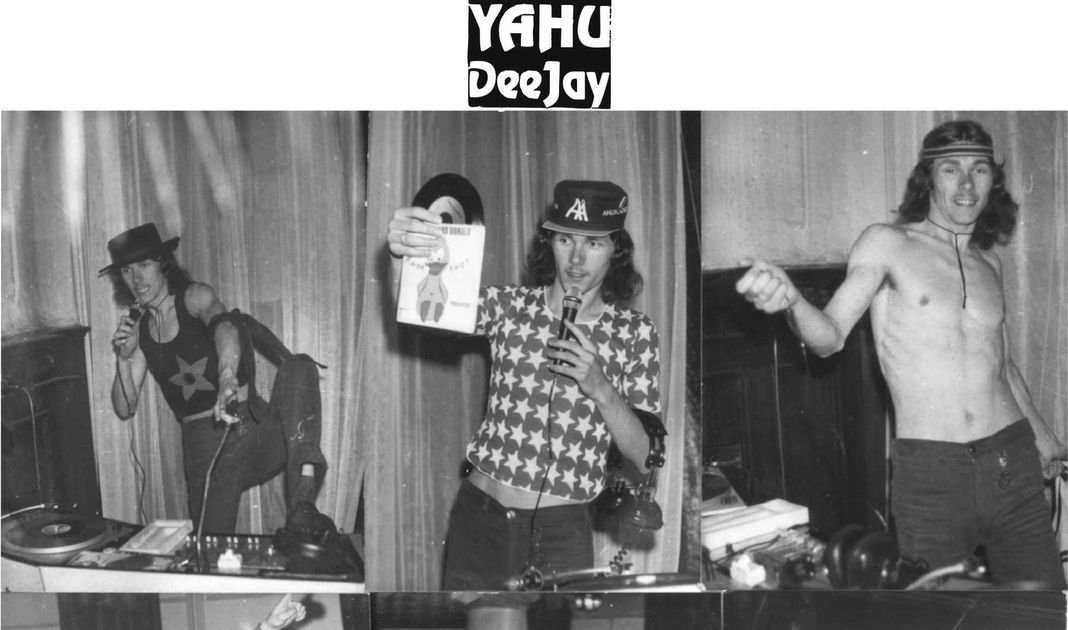
WHAT and WHAT FOR IS PATRONITE SERVICE --- https://patronite.pl/about
Check me over there :-) --- https://patronite.pl/janpawul
------------------------------------------------------------
ZDECYDOWAŁEM że do wszystkich moich artykułów i fragmentów książek dostęp będzie zawsze darmowy, a nie dopiero po zapłaceniu progowej kwoty wsparcia i dostępu. No a jeśli ktoś uzna że zostanie moim ‘Patronem’ i będzie mnie wspierał finansowo to BÓG ZAPŁAĆ … no i potraktuję takich ‘Patronów’ szczególnie …
*Dla Patronów wspierających mnie kwotą większą niźli 100zł miesięcznie mam nagrody specjalne czyli NOWIUTKIE I NIGDZIE NIEDOSTEPNE PŁYTY CD I KASETY MAGNETOFONOWE DO ROZDANIA ZA DARMO ! + KSIĄŻKI W WERSJI ELEKTRONICZNEJ
----------------------------------------
I HAVE DECIDED that access to all my articles and book fragments will always be free, and not only after paying a threshold amount of support and access. And if someone decides to become my ‘Patron’ and supports me financially, then GOD BLESS YOU… and I will treat such ‘Patrons’ especially…
*For Patrons who support me with an amount greater than PLN 100 per month, I have special prizes, i.e. BRAND NEW AND NOWHERE UNAVAILABLE CDS AND TAPE CASSETTES TO GIVE AWAY FOR FREE! + BOOKS IN ELECTRONIC VERSION.
Contact --- pawul70@gmail.com
Pokazuję (link) okładki płyt i kaset do wyboru:
I am showing (link) covers of CDs and cassettes to choose from:
https://patronite.pl/post/72793/otro-group-r
not so precise translation yet by Google translator …
---------------------------------------------------------------
The difference between ignorance and awareness is wisdo
We don't know where we are going unless we know where we've been
Without that knowledge... history is gone with the wind
... !! - I was a DJ in early '70 - before there were
NO discotheques even and disco DJ profession :-))))
To be a discothque DJ and play american / english music here in Poland when ’60, ’70, ‘80 communist time - was real life risk for me. Not so much pleasure and good bizz as for west / free world DJs !! Secret political Police (SB) killed many people for smallest reason than DJ. Why I'm alive ? Well maybe I'm lucky or God saved me of His reason and way ? - - ->> or they (SB) thought (because lack of knowledge, informations, etc.) DJ work not any danger for communism ...
But today we know DJs work and discotheques changed some / many young Poles minds and they fall in love to other style of life than communists want for them :-)))) I spent part of my life to spread, popularise american / english music, culture and style of life in communist Poland back then and put my small brick to build freedom here - same what Mr. Walensa did but he did much bigger size / scale ofcourse.
YAHUDEEJAY
... trampled dreams ...
story of discotheque deejay behind ‘Iron Curtain’
former communist regime Poland of ’60, ’70, ‘80
__________________________________________________________________________
Intro ...
In the '70s - when extremely interesting things happened in the world, when disco music was born overseas, Poland and Poles remained (without their fault) in deep backwardness and ignorance about the above-mentioned phenomena. We were tightly separated from the world and civilization by the famous Iron Curtain, which was left by the communist rulers of our country. This iron curtain did not allow messages, music, new recordings, mixes etc. of things to be born in London or New York. The Polish nation, or rather parts of this nation, flashed many interesting events around the nose. The contemporary Polish media directed by specially educated, obeying to the authority ignorant whores with full unconsciousness, and perhaps with perfidious deliberation (who knows) caused that in the minds and memory of Poles (with few exceptions) there was no and no knowledge about those days, about people who made disco.
A dozen or so years have passed since the political breakthrough in 1989 musical business and media in Poland were first of all taken care of piracy and the creation of fortunes built on ordinary thievery. They stole and traded what, by random accidents, became known, popular and could bring quick revenues. Far from it all, it was from the truth and knowledge that could bridge the gap separating Poles from the achievements of world culture. Time cures all social illnesses, and in Poland you can see a healthy manifestation.
There are, for example, the possibility of writing - writing also and what, as I have already mentioned, escaped Poles (with a few exceptions) near the nose leaving in their minds emptiness and ignorance about certain issues related to the civilizational musical achievements of humanity. Based on the assumption that it is better late than never - I write informing about what the above emptiness and ignorance will allow to fill facts, names, titles, dates and descriptions of events.
In times when disco history started, nobody cared about it (especially here in Poland !!) to preserve for the purposes of historical order various important facts, names, events and dates. For this reason (today after years) it is quite difficult and imprecise to determine how it all began.
First steps ...
At first it was collecting pictures. I got the first one from Zbyszek Sękowski (his father was an important communist party activist in the city) who lived on ul. Pocztowa in Dzierżoniów, cousin of my childhood friend Andrzej Błaszczyk, with whom we met when we were about 5 years old. Andrzej moved to the house next to mine. We stayed for a long time as two guys and only when we were after 16 or 17 years everything started to change. Everyone went their way.
It began with the movie The Beatles (worldwide known as “A hard Days Night”) - drawing subtitles and pictures on the walls. Then for the cash from school saving name SKO - the first rock'n'roll single bought in the pawnshop - 7 EP (EP) Niemen, Michaj Burano, Toni Keczer. I did not have a turntable at the time and could not listen to it, but I had it and it was my pleasure to look at it myself. I played this disc / record for the first time many years later. Such was life, such times - communist-PRL-poor.
In 1967, 68, I listened to Rytm Studio for hours - Polish Radio or Radio Luxembourg, and imitated some gibberish that was supposed to be the english language of these radio deejayas. My mother asked me if I had not lost my mind or what - why I mumble and yell something out there in my attic room 1.5m2.
In 1969, I made friendship with guys from the so-called (by me) Radio RTV from the Radio and Television Technical School in Dzierzoniow. I remember when we were at night practicing and recording programs - then directed to broadcast in the school board speakers (some 400 listeners) + loudspeakers in school corridors, (some 900 listeners) running on a long, 20-minute break between lessons. It took me a lot of time to write texts of comments for recordings with hard-earned borrowed records. Then I practiced these texts for hours to finally record them as so-called deejay saying to the microphone. It was fun, but as everything had its beginning as well as the end.
the record
I have in my collection of CDs, collected with great difficulty over the last 30-40 years, one such a special, symbolic one that evokes memories in my memory. I do not play this record anymore because I'm sorry for it, and it's terribly cracking because it's gone. Sometimes I only look at her, then I close my eyes, and from the memory come out images from many, many years ago. Time blurred the pictures, but I remember some people, places, circumstances and matters that gave meaning to my life.
The Beatles
It was a late and warm spring in 1966, when I lived in Dzierżoniów, a small picturesque town at the foot / so close of the Sudetes. In the local cinema "Piast", an English movie called "The Beatles" was screened. In other countries, this film was shown under the original title "A Hard Days Night".
The house was not overflowing, so I wanted to go to the cinema to make a ticket myself. I looked out for local drunkards in the nearby squares and in the neglected parks. These were not lacking then, there is also their arduous excess and today. Drunkers shitty, as my mother called it, always left the bottles, probably because they did not want to bring them to buying bottles shop. I knew my city quite well as well as I had a "rough" all the surrounding area. I collected all these bottles and this was my way of earning some miserable, but still cash. After a few days of collecting, I was finally able to buy a ticket and sit comfortably in a cinema chair.
With a beating heart, I waited for what I would see. I had no idea what I would see, but some strange way I felt something was coming. The lights went out, the music I had never heard before, hits from behind the picture / cinema screen. The images, the Beatles figures and the wonderful songs they sang, gliding in front of my eyes, drew me into the story I watched like an enchanted fairy tale.
I was only 14 years old - an open, absorptive mind and felt like in the darkness of the "Piast" cinema, I became more and more fascinated with what I saw and heard. The film lasted some 80 or maybe 100 minutes, but it seemed to me that it was only a moment between the first pictures I saw on the screen and the final word The End. Today, from the perspective of years, I can honestly write that my youth was divided into the period before and after watching the movie "The Beatles". Before the movie, I was the most ordinary boy, millions of whom were growing in Poland in the 1960s. During the week as everyone was running to school, after school I got dirty and torn pants on fences and trees. On Sunday, at the request of my parents, I performed the duties of an altar-boy at a local church. I did not really realize that there are other countries, people and phenomena such as The Beatles and their music. My life determined the rhythm of the existence of the family home and the city.
Mother, father, younger brother, a few closer and farther colleagues, nearby streets and squares where we spent our childhood was everything that I knew, what I had and which was enough for me, which was very good for me. Several dozen minutes before the cinema screen and what was happening on it, the idyllic calmness of the whole of my world in which I was brought up so far torn down. A bacillus had sneaked into the young mind, which over time overcame him more and more, causing some confusion or something. I saw and heard this "other", something that in the minds of millions of me like kids has revolutionized views (such as may have a dozen or so kids) for the immediate surroundings or the notion of a distant world. Some dreams, aspirations, new and previously unknown desires have begun. I liked this new state of affairs, and this new fascination deepened and deepened me.
It started collecting photos and biographies of big beat / rock ‘n’ roll bands. We set up a band with classmates and we wanted to play like the Beatles or the like, who grow like mushrooms after rain in Poland and beyond. The world cultural and social revolution of the 1960s has become a reality and I was very happy that I took part in it in my own way, but I did take part in it. Probably, if not for Elvis Presley in the US and Beatles in Europe, the fate of millions of young people around the world, the fate of all music, the fate of all musicians, artists and everything that has always been connected and binding would be completely different.
There was a deejay ...
The autumn of 1968 was cool and rainy. I spent a lot of time in my tiny little room in the attic, with my own hands from the lofty part of the cell. I was sixteen and I was getting baked on my face when, late at night, in secret from my mother and my brother raising my mother alone, my mouth wide open, I listened to the voice of a man on the radio. It was Radio Luxembourg 208, and the voice belonged to the excellent English discjockey Alan Freeman. It was the first discjockey I heard in my current, short life and at the same time an introduction to fascination with this profession. Soon, I began to try to imitate this way of speaking and presenting music from records.
Everything was feigned because I was too poor to have any records or a turntable with sound equipment. At that time I did not realize what I was doing and why. It was an uncontrollable reflex, an internal need. Life enriched me with new experiences, demanded sacrifices and sacrifices. Making a choice between what was widely recognized, respected and recommended to young people, and what was fantasy in Poland at that time, emptiness, nothing - it became a great problem for me in the future to put a gloomy shadow on my life. In the end, I chose. In spite of all the circumstances that were unfavorable to me in those times, I tried to become a discjockey. Hours of exercise, meditation, listening. Finally, work in community cultural / entertainment centers and school radio stations.
Led Zeppelin
It was a sunny and quite warm spring day in 1970 when my talented friend painted two huge posters of UK Led Zeppelin group informing that soon the presentation of Led Zeppelin II album will take place in the House of Culture of Cotton Works Bielbaw in the picturesque Bielawa at the foot / close of the Sudetes. At the time, I lived in Dzierżoniów, three kilometers away from Bielawa. For days I was combining how to get into the work ordered from time to time by the Workers' Houses, then called lectures - illustrated with music from discs.
Although Dzierżoniów was bigger than Bielawa and had more places where it was possible to organize these lectures and presentations of music from records, Bielawa turned out to be more modern and forward. Probably thanks to the wonderful young people who managed the Bielawa's Cultural Houses. The man who trusted me and the first gave a chance was an unforgettable, freshly baked master of art history at the University of Wroclaw, the new head of the House of Culture of Cotton Works "Bielbaw" Mr. Andrzej Janiszewski. It was thanks to him that I first appeared in public presenting the Led Zeppelin II album.
I was preparing for this a few weeks earlier and very solidly for those times and technical means. First of all, I learned by heart the barely acquired biography of Led Zeppelin. I wrote a script and lyrics for individual recordings. The day of trial and final test was imminent. That day I woke up early in the morning, I made myself free from school and fiercely practiced my announcements. In the afternoon I went by bus to Bielawa. I got off the center city. The air was warm and smelled of the smell of nearby mountain forests. A happy porter greeted me on the ground floor of the Cultural Center. What he was so pleased with - I thought for a moment. I entered the wide stairs to the first floor. I opened the door to the great hall and almost flew off. The room was full of people. As I was told later there were about 400 people. My heart started to beat hard, my breathing accelerated. I went to my place, put a record on the turntable and played the first recording of "Whole Lotta Love". I sat on one of the chests of two playing East German Vermon loudspeakers, took the microphone in my hand and waited for the end of the recording. This was the moment of my first public statement / announcement of the record and the next recording. Such a deejay baptism.
Dude from the first grade of elementary school
In the summer of 1969, from Adam, a guy who was Polish and came from England to his grandma's vacation, I learned for the first time about the new fashion and phenomenon that the English called DISCOTHEQUE. I knew Adaś and remembered from 1959. He sat in the pew behind me when we were both 7 years old in first grade primary school.
One winter and frosty day in 1959 a tall guy came to him for class. Our teacher-lady said that we would say goodbye to Adas because he goes to England forever. From the whole eight-year period of going to primary school, I remembered only a few events that made a great impression on me. The departure of Adam and his new, great English dad made the biggest impression on me, the seven-year-old toddler. I do not know why today.
When, after ten years, Adaś, as a 17 year old, came to Poland for vacation, I immediately found him to talk, to learn as much as possible about how a young man lives in the beloved of all of us, for the Beatles, for the Rolling Stones and for Radio Luxembourg, England. Adam still spoke Polish, but he already had a heavy English accent - which I liked.
We sat up late at night on the granite stairs in front of my house - he was talking, I listened with a wide-open mouth. It was then that I experienced my continous life fascinations with certain new phenomena of European and English pop culture. From the Adas story I was most interested in discotheques. I have determined that these are places where discjockeys play and announce records, and people listen and dance.
At the age of 17, I made (as it turned out later) a life decision - that I would be (for I do not know what!) Discjockey. Adaś, a guy from the school bench in first grade, never appeared in Poland again. Maybe because his grandmother died and he did not have anyone to come to? In my memory, however, he remained forever as the one who twice made a great impression on me and directed my fate to other, new paths.
It could have been different
When the first discotheques appeared at the beginning of the 1970s, no one would predict that it would take so long and develop so much. As far as the so-called in the Europe West it was fast and easy, in Poland the whole phenomenon called the discotheque was subjected to the "filtration" of various communists, pseudo-activists, more or less connected with the then administration and authorities. We were rather about stopping the development of discotheques and everything connected with it. Even the so-called "verifications for presenters / deejays", a camouflaged form of controlling and hindering the work of very independent and free deejays. It is worth noting that nowhere in the world were discjockeys verified in such a dumb administrative manner. There, deejay either liked by the audience and he had a job, or they did not like him and nobody wanted to hire him. Simple and true, but in Poland, due to the sick ambitions of some "activists", it had to be different.
Those of us (DJ's), who survived these tragicomic times for Polish discotheques, probably remember how these "verifications" looked like, whom and what type of deejay they preferred. The effect of those who then decided about the fate of the Polish discotheque and DJs was such that the world went its (right) way, and Poles its (also proper) Poles, but in the opposite direction. I was aware of one of the few discotheque discjockeys in Poland at the time, in all these swindles, because I was informed by well-known friends from the professional discjockey organization NADD - National Association of Discotheque DiscJockeys based in New York and the Great Britain NADJ - National Association of DiscJockeys based in London.
I was honored to be an honorary member of these organizations as the only (?!) deejay from Poland. American NADD issued a magazine MELTING POT, and an English NADJ magazine – (first) DEEJAY, then DISCJOCKEY and RADIO TODAY. These writings brought a lot of valuable information and were a great educational material for the discjockeys at the time. Very often, the above-mentioned magazines were also written about me. These were cool articles illustrated with my photographs from the "action" at the console. Some of these articles (only a few copies of the above-mentioned magazines reached Poland to other than my address) evoked animal, cruel and primitive rage of the so-called "the national board of discotheque presenters / deejays (KRPD)" and related (as it turned out, unfortunately) surprisingly wicked and stupid people. They were surprised that some absolutely free and independent Polish discjockey, who does not want to be with the "members" - KRPD - to make friends and totally overeat their so-called "verifications" can be treated by Americans and English with due respect.
What surprised all these "members" with - KRPD - not at all, but it did not surprise people from the US or Great Britain, because they rated me on the basis - mainly the tapes I was told to them, recorded in my discotheque and based on texts that I wrote for them about Polish discotheque and deejays. Apparently, they regarded all of this as materials at a sufficiently high professional level to treat me as the then discjockey number 1 in Poland. They wrote about me that way. What is the most important in all of this is that all Polish deejays and organizations could (after all) conduct themselves similar to my international activity and cooperation. Why did they not do this and would rather envy me / envy the effects of my foreign cooperation in the form of, for example, hundreds of promotional CDs a year and similar materials? To this day, I can not answer this question with precision. I could only assume that the reason was the stupidity of these people, maybe their backwardness, maybe ignorance, and perhaps the innate national flaw which is undoubtedly selfless envy, or maybe something else that I did not have and I have no idea.
I was a discotheque deejay back then, when there were no discotheques in Poland yet ...
A handful of enthusiasts composed sound and lighting equipment, while looking for sources from which regular foreign albums could be received. We were 17/18 years old, we were able to work with hunger, cold and mostly for free. We liked the idea, the idea of being a discjockey of music that all the young people loved at the time, that we did not pay attention to the laws, regulations, councils or the attention of the surroundings. Surely, if we would listen to it, the entrance of the discotheques to the Polish lands would be postponed by several years, a few long years. Fortunately, the quality of youth is usually a small respect for existing social or family orders. Thanks to this, among other things, civilization is developing.
The 1st National Discotheque Deejays Tournament
In 1973, it was certain that despite all the problems that should be associated with those times, the discotheque was an undeniable fact in Poland. Between October 15-21, 1973, the first National Discotheque Tournament took place in Wrocław. At that time, Poland was a backward country
in many fields, but (I can say that with certainty) in one of the few areas of human activity that discotheque clubs were in the early seventies, we were almost at the level of Europe and the World. I know this because I had my own numerous contacts with deejays and foreign organizations. I could easily compare the level of Polish and foreign deejays, as these others gave me a lot of different promotional and advertising materials, among which there were also tapes recorded by them live in discotheques.
The first National Discotheque Tournament organizationally was a very big undertaking. Discjockeys first passed through the elimination sieve of rural, communal or county Cultural Centers. The best were on provincial eliminations. Subsequently, the laureates of provincial tournaments came to Wrocław. There were so many of us that the tournament lasted up to a week. The esteemed jury chose the final 16 semi-finals, ie the sixteen best discotheque discjockeys in Poland at that time. I had the privilege of being among the sixteen wonderful. I remember the member and the head of the jury, Franek Walicki, remarked to me: "It's good, you do it very vivaciously (I present, comment on released hit records), but too much of similarity to Radio Luxembourg discjockeys." Well, to whom I was supposed to be similar like when the best example was they, giving their wonderful programs on the wavelenght (medium wave (MW) of the 208 - deejays of Radio Luxembourg. Almost with the service, I listened to them at nights. I learned from the English style and how to quickly speak, accent and mix text with music.
The discotheque dance music was quite different from today's times. At the very beginning, what was very popular at the time was playing: Led Zeppelin, Deep Purple, Budgie, Jimi Hendrix, Janis Joplin, Black Sabbath, Ten Years After, Jethro Tull etc., strong, blues-based hard rock records.
In the mid-seventies, so-called British pop wave with such stars as: Gary Glitter, Suzy Quatro, Smokie, Bay City Rollers, Status Quo, etc. Also received music from USA, rhythm & blues, soul, funk and funky. All this was popular music, but not especially discotheque. It was not until the second half of the seventies that typical discotheque productions started to appear (dance music). Barry White, Sister Sledge, Bee Gees, Peter Brown, Earth Wind & Fire, Chic, KC & Sunshine Band, Isaac Hayes, Salsoul Orchestra, Donna Summer, and many others have gained popularity. Deejays were then divided into two groups: those who played American music, recorded mainly by black musicians, and those who played the primitive European songs in the style then called italo disco, which can be compared to today's shitty “disco-polo” of Polish music market.
The saddest period of Polish discotheques
The beginning of the eighties was martial law in Poland, and thus the retreat from the profession of many excellent Polish deejays, whose names no one remembers today. Many of them emigrated from Poland. There was a breakdown of the Polish discotheque. For a time, various losers were clubbing in the clubs promoted by their excellent predecessors, and finally, with their own characteristic, "slaughter" almost all the best discotheques in those times, mainly the network of ZPR TIP-TOP, and some of the more famous student clubs.
In the second half of the eighties, our best discotheques turned into smelly, drunken pubs where a waiter, a drunk gypsy, a hooker, a prostitute or a “toilet grandmother” decided what the deejay was supposed to play and say. It was the saddest period of Polish discotheque history.
Dancing with shadows
I never stained my honor with the pioneer deejays, pummeling with those who harmed, teased and persecuted the deejay for being more powerful than the average sense of freedom.
That's how I used to be, I'm like this today and I will always be like that. Once, I opposed the communists and their slave-servants, who were all without exception taking part in the shameful persecution of free Polish deejays with the help of the so-called "verification" or some "national boards of disco presenters / deejays". Today (writing sharp and bold articles) I defend the deeks of the persecuted from another but equally stupid as in the past reason. For the morality and righteousness thus understood, the blind fate rewarded me with humiliation and misery. The overwhelming desire to remain oneself, avoiding the simplicity, clicks created by guys for dudes, all layouts / layouts and top-down ideas led to loneliness in actions and work.
The socialist / communist reality was overwhelming, it seemed so merciless that it seemed to me that all weakness was in me. It made an impression as if some dark shadows escaped from the evil fairy tale followed my trail looking for a weaker moment, looking for opportunities to make life more difficult. My colleagues, discjockeys from the free world were making careers, earning money. I, due to my unfortunate place of birth, stood with my dreams and strivings in place, losing distance to those who I was still not so long ago. Any attempts of a desperate breakaway of a citizen of category B (which no doubt in communist Poland was a discjockey like me) from the stagnation, marasmus and backwardness, sock communist Poland of the '70s or' 80s came to naught. All my plans, built with panache, and attempts to remain a deejay at all costs and against unfavorable circumstances led only to greater alienation, stress, bitterness and loneliness. I suffered, my relatives also suffered: a wife, children, a tired and old mother who believed in her son's aspirations and dreams.
The beginnings of discotheque in Poland were great because it was free and independent. However, the ‘haunted commie repairers’ of the world had to appear (as it usually happens in Poland). They organized, confused and killed everything that was the best, namely youthful enthusiasm, passion, dreams.
!! much, MUCH more soon
----------------------------------- watch this kind of video - photo compilation ---
https://patronite.pl/app/play-video?id=b6e5cf19-d0a0-4522-a11a-dad78c7a79f5
+++ https://patronite.pl/app/play-video?id=d40e6340-f8ad-4cfc-a67d-e4c766646324
and this one – just for fun :-)
https://patronite.pl/app/play-video?id=7bcbf184-39c7-43fe-aabd-e634d12ae45b
NOWIUTKIE PŁYTY CD I KASETY MAGNETOFONOWE DO ROZDANIA ZA DARMO DLA PATRONÓW !!
W drugiej połowie lat '90 pracowałem dla firm fonograficznych pragnących wyjść z piractwa fonograficznego - zmory tamtych czasów polskiego rynku muzycznego / fonograficznego. Sprowadzałem dla tych firm licencje fonograficzne. Wydaliśmy kilka fajnych płyt CD i kaset magnetofonowych (no bo to była ta epoka :-) Dzisiaj to są już muzycznie historyczne wydawnictwa, które można traktować sentymentalnie ...
Mam kilkadziesiąt nowych egzemplarzy promocyjnych z tamtych lat i rozdam je jako nagrody specjalne - za darmo, po jednym egzemplarzu - każdemu nowemu PATRONOWI - aż do wyczerpania zapasów :-)
------------------------------------------------------------
BRAND NEW CDS AND TAPE CASSETTES TO GIVE AWAY FOR FREE TO PATRONS!!
In the second half of the 90s, I worked for record companies that wanted to get out of record piracy - the nightmare of the Polish music/recording market at that time. I imported record licenses for these companies. We released a few cool CDs and tapes (because that was that era :-) Today, they are already musically historical releases that can be treated sentimentally ...
I have several dozen new promotional copies from those years and I will give them away as special prizes - for free, one copy - to each new PATRON - while supplies last :-)
------------------------------------------------------------
In this material, I show the covers of records and tapes to choose from.
https://patronite.pl/post/72793/otro-group-r
W tym materiale pokazuję okładki płyt i kaset do wyboru.
Zgłaszajcie się na adres / Contact me at


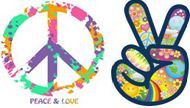
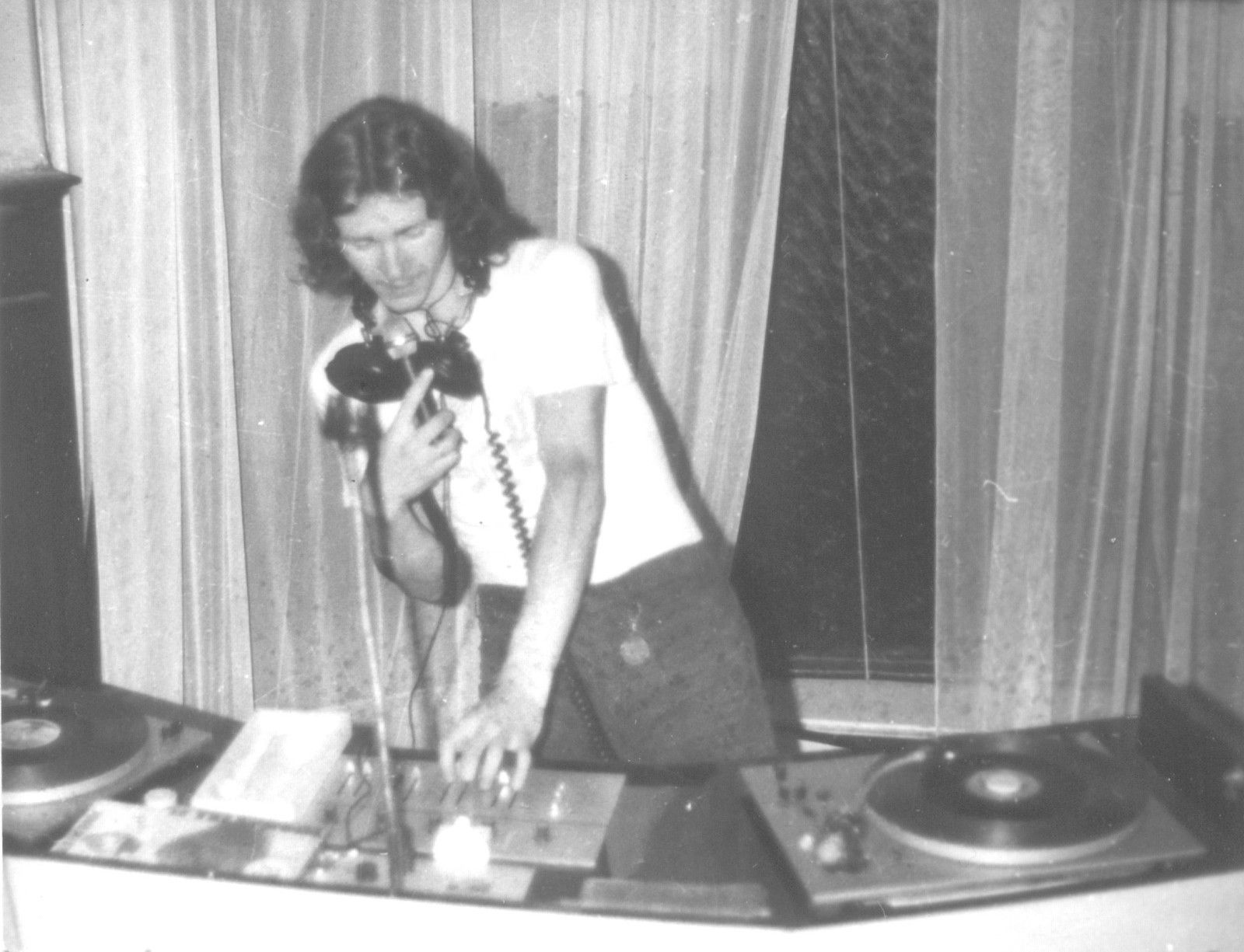
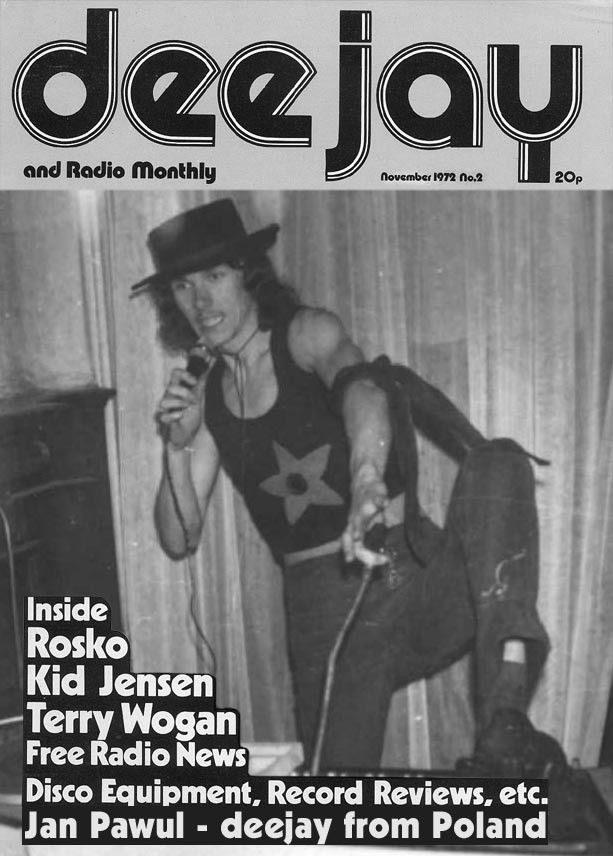
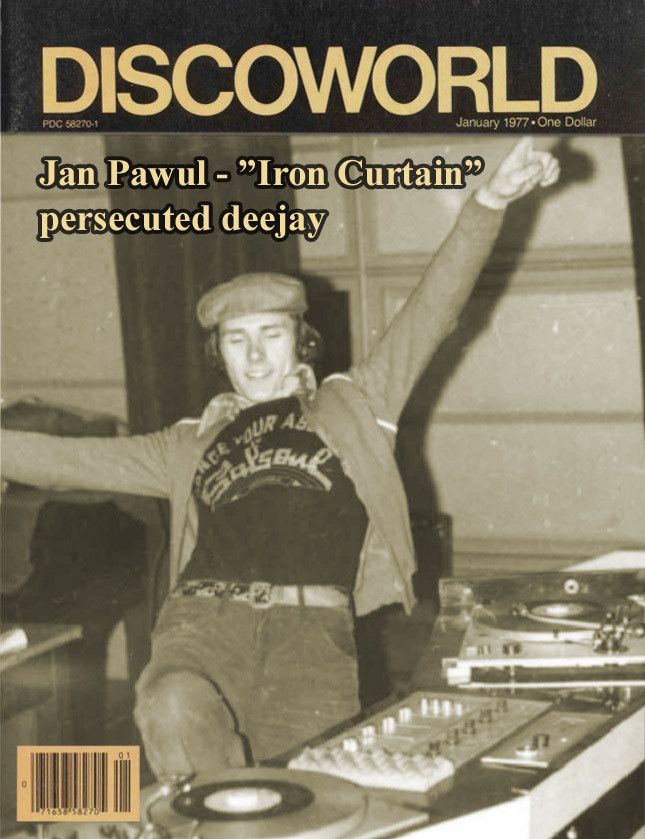
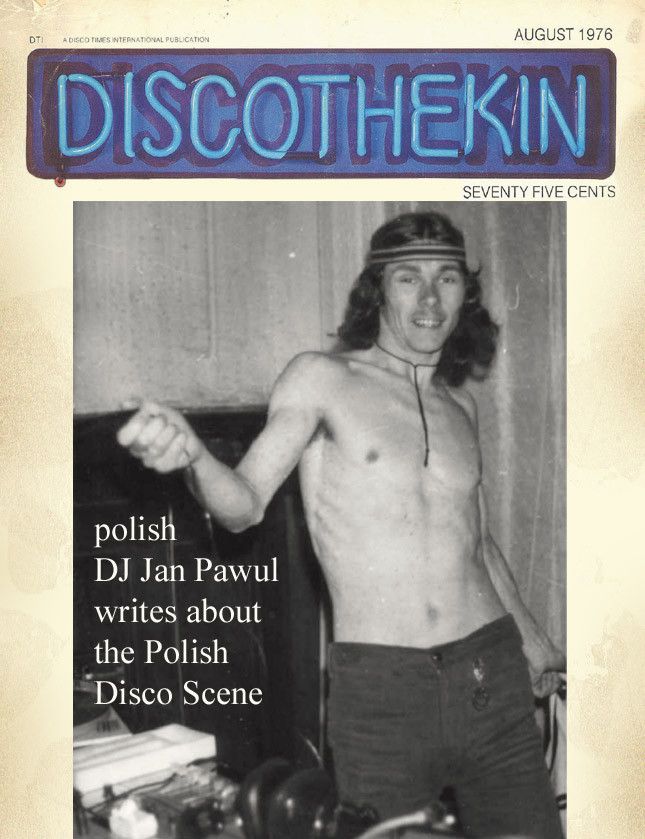
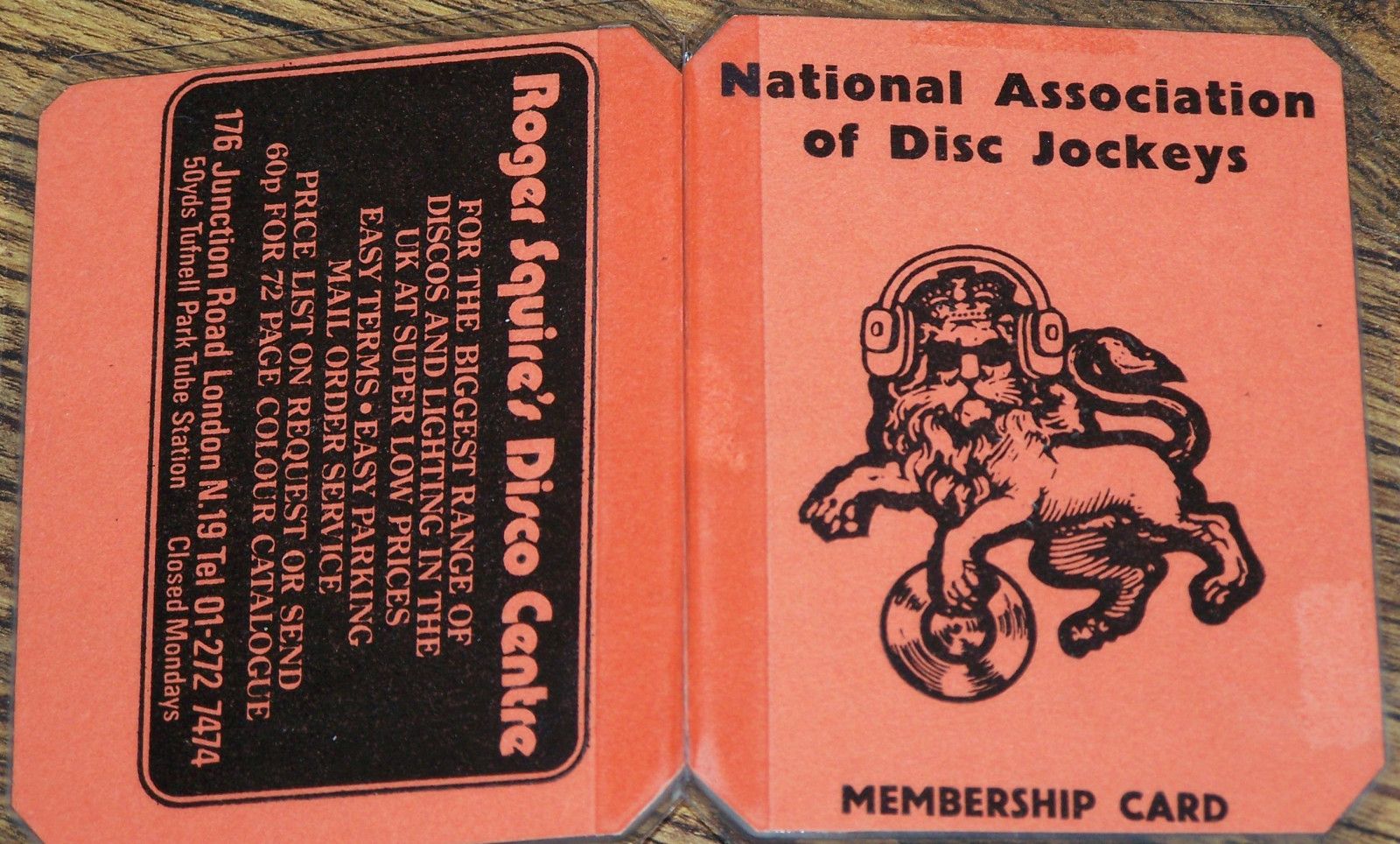
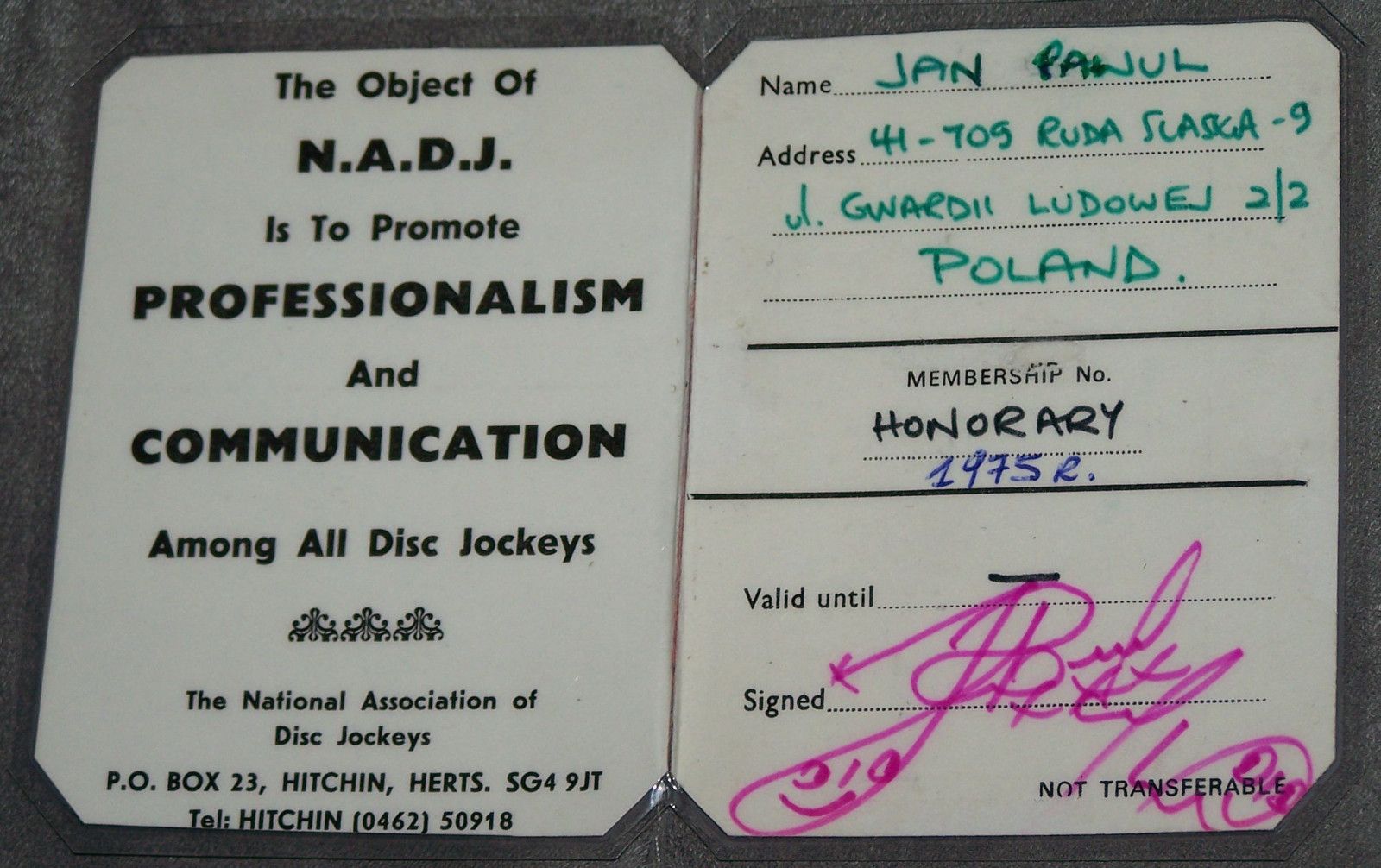
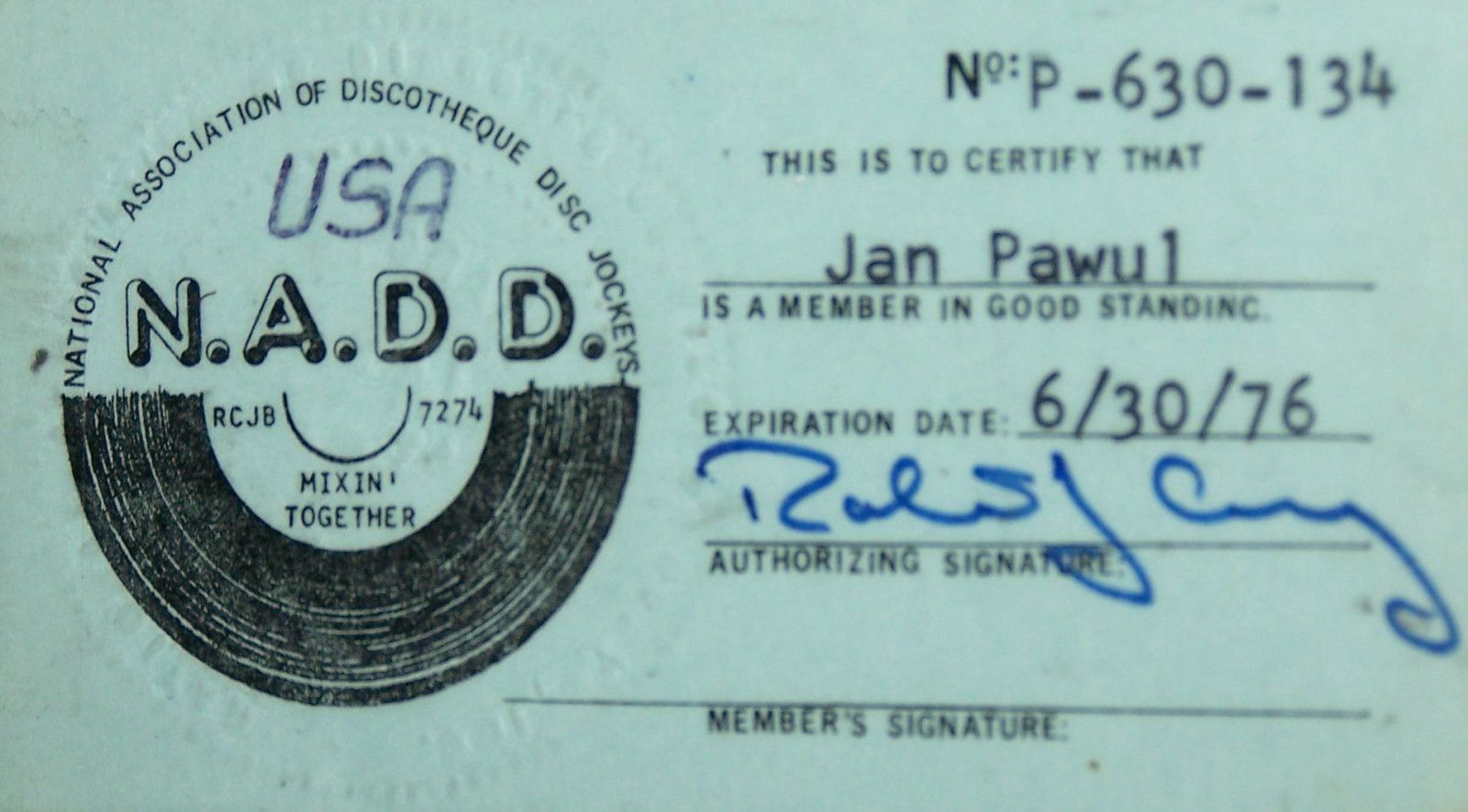
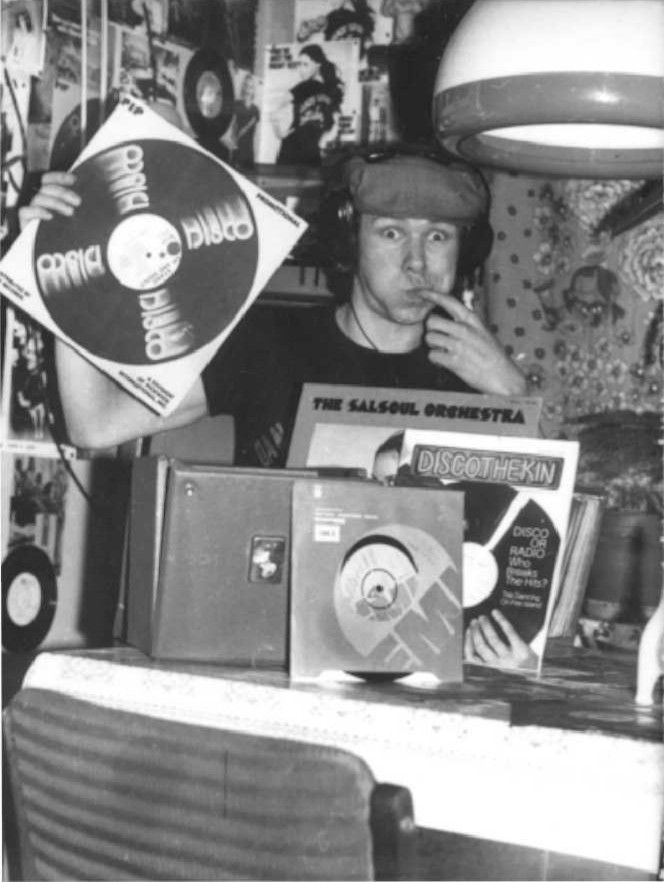
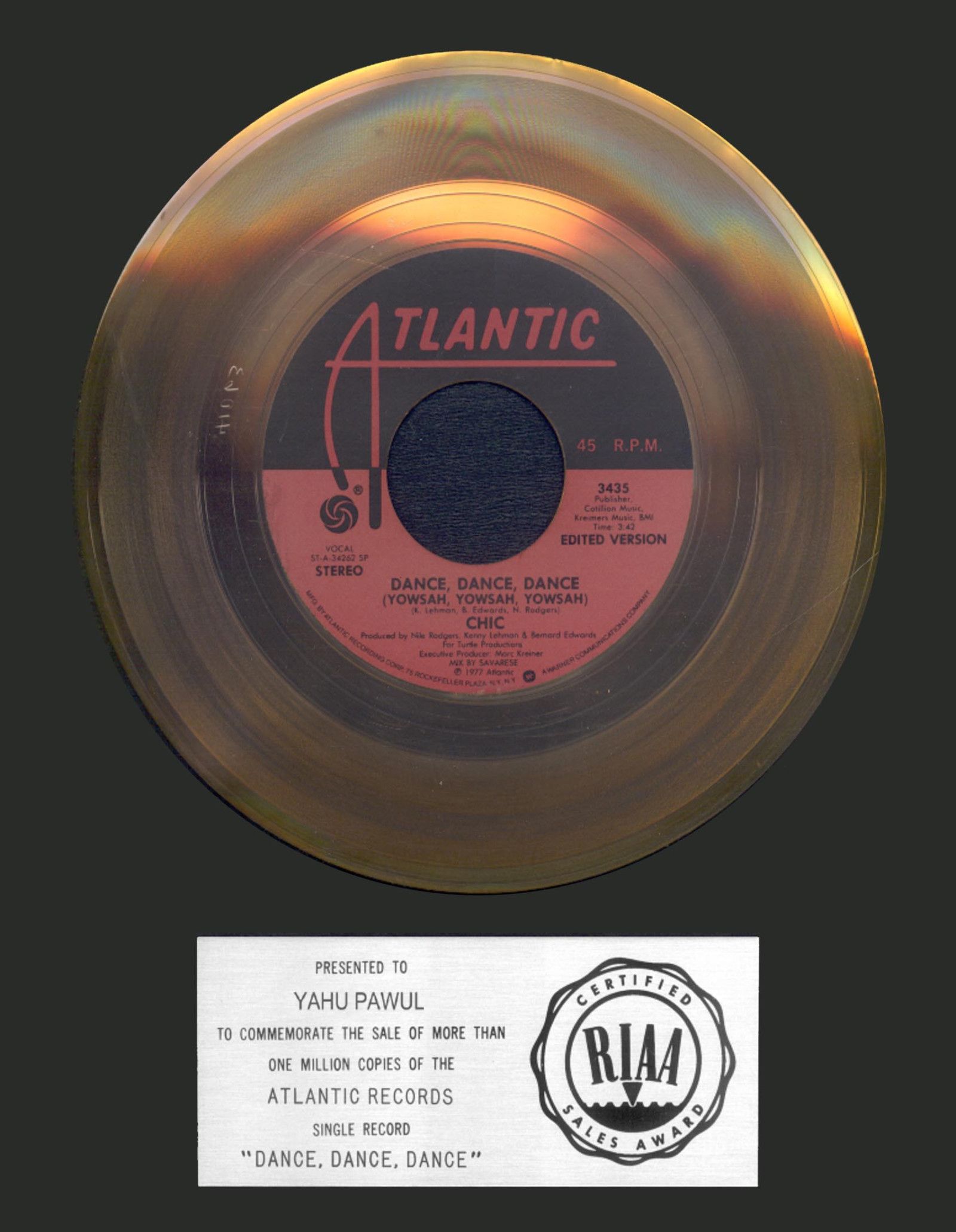
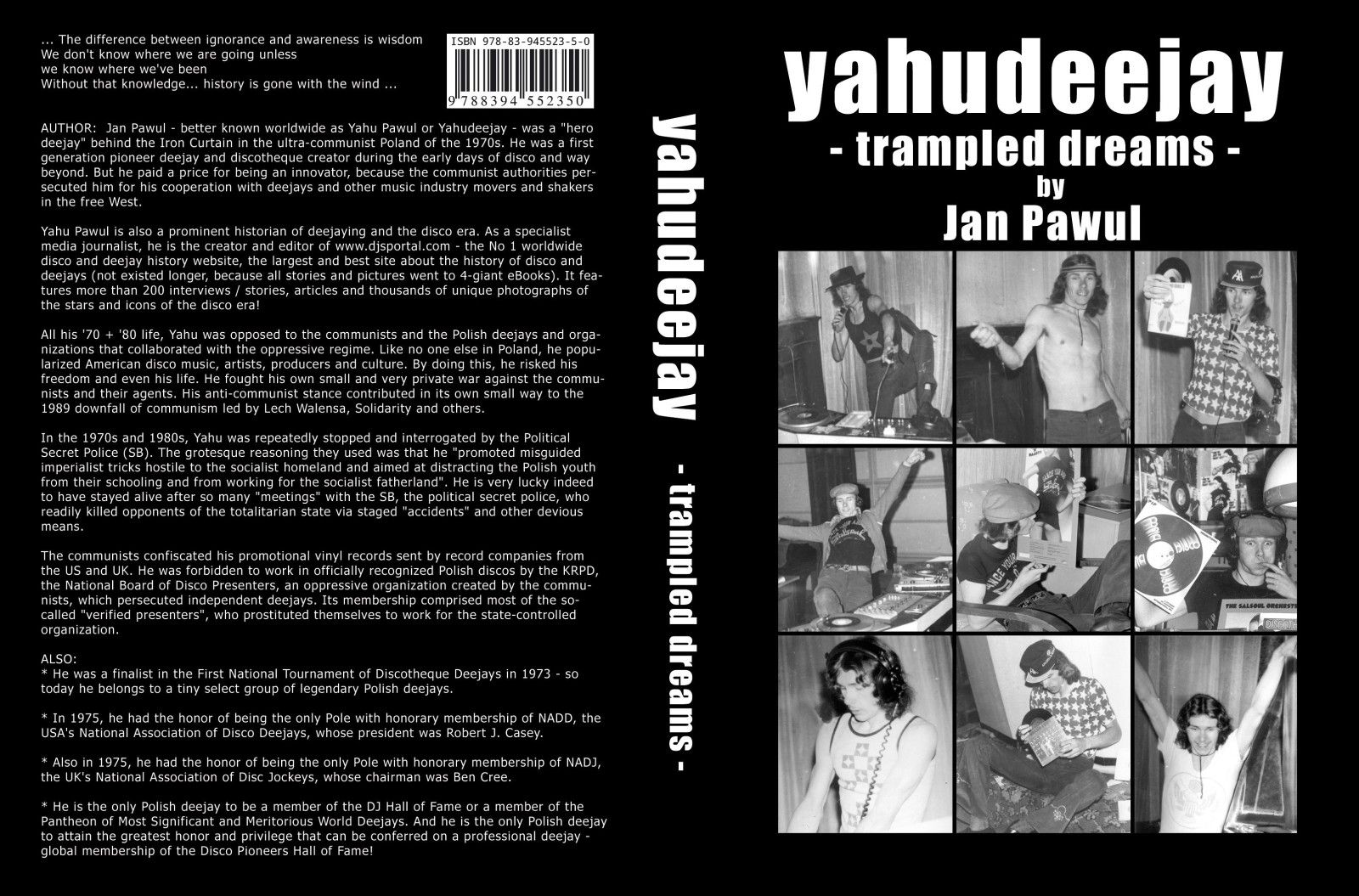
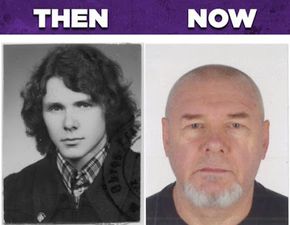

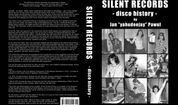
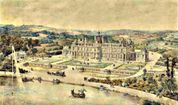
Trwa ładowanie...